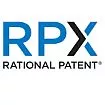- in United States
- with readers working within the Banking & Credit and Law Firm industries
On the heels of a $278.8M jury verdict in an earlier case against Samsung, Headwater Research LLC has filed another round of suits against AT&T (AT&T Mobility) (2:25-cv-00464), Deutsche Telekom (Sprint, T-Mobile) (2:25-cv-00462), and Verizon (Verizon Wireless) (2:25-cv-00463), all in the Eastern District of Texas as well. These May cases follow a trio of April ones—AT&T (AT&T Mobility) (2:25-cv-00428), Deutsche Telekom (Sprint, T-Mobile) (2:25-cv-00359), and Verizon (Verizon Wireless) (2:25-cv-00391)—that themselves followed a trio of February suits against the same three defendants.
Headwater pleads that it "was formed in 2011 and has been in continued existence and operation since that time", now indicating that it is "a Texas limited liability company organized under the laws of Texas". (For coverage of the entity's previous formation elsewhere, see here.) Headwater began its litigation campaign with an October 2022 case against Samsung case, which ended in a noninfringement verdict, Headwater subsequently filing five additional US lawsuits against Samsung as well as two actions before Europe's Unified Patent Court (UPC). Headwater's principal, Greg Raleigh, is a named inventor for the asserted patents, which belong to a family broadly related to mobile data management and security, totaling nearly 280 issued patents with issue dates ranging from January 2009 to February 2025.
The wireless carriers were brought into the campaign with 2023 suits: one in July against Verizon Wireless, two in August against Sprint/T-Mobile, and one in August against AT&T Mobility. That August, Headwater also sued Lenovo (Motorola Mobility). In the two cases tried to juries, Samsung challenged the plaintiff's standing to sue based on Raleigh's past employment with Qualcomm; neither challenge was successful. The background here is also marked by interactions between the defendants and ItsOn, a company that Raleigh started in the early days of his patent portfolio's development; for detailed coverage, start at "'Anonymous Package' Contributes to Notice Allegations in Headwater Research's Latest Pair of Complaints" (September 2023).
As noted, in a second Headwater trial against Samsung, an Eastern District of Texas jury returned a verdict on April 25, finding that Samsung infringed claims 1, 7, and 19 of the 8,406,733 patent and claims 1, 12, and 16 of the 9,198,117 patent, and awarding $278.8M in damages. A third patent-in-suit (9,615,192) was not tried, the plaintiff omitting that patent from its final election of asserted claims. Across the campaign, Headwater has now asserted more than 40 patents from that same large, 280-patent family.
In the May cases against the wireless carriers, Headwater asserts three patents (8,635,335; 10,791,471; 10,237,757) from that family, casting a wide infringement net. For example, in the Verizon case, the "Accused Instrumentalities" include "Verizon's cellular networks, servers, and services that implement wireless offloading functionalities" as well as "wireless devices (including mobile phones, tablets, laptops, wearables, IoT/M2M devices, and vehicle infotainment systems) that operate on Verizon's cellular network and support automatic or policy-driven handover between cellular and Wi-Fi networks". Per that complaint, with analogous allegations in the others, "These devices, used, offered for sale, sold, and/or imported by Defendants, incorporate network scanning, Wi-Fi prioritization, and incentive-based offloading techniques, infringing upon the patented inventions".
In the April trio of cases, Headwater asserts a different three patents (8,023,425; 8,631,102; 8,799,451) from that same family, these patents generally related to an endpoint device that provides a network "forwarding service". There, Headwater targets the provision of wireless devices (e.g., "mobile phones and cellular-enabled tablets and laptops") that operate on, e.g., AT&T's cellular network and that support tethering features. As previously reported in more detail, the February 2025 cases against the wireless carriers saw five patents (8,639,935; 8,832,777; 9,973,930; 11,966,464; 11,985,155) asserted, with infringement allegations focused on another wide array of products, including cellular networks, servers, and services; eSIM provisioning and management components and systems; and eSIM-enabled devices ranging from smartphones to vehicle infotainment systems.
The next case up for trial before District Judge Rodney Gilstrap appears likely to occur in the July 2023 suit against Verizon Wireless; jury selection is currently set for June 2025. Russ August & Kabat continues to represent Headwater. 5/2, Eastern District of Texas.
The content of this article is intended to provide a general guide to the subject matter. Specialist advice should be sought about your specific circumstances.


